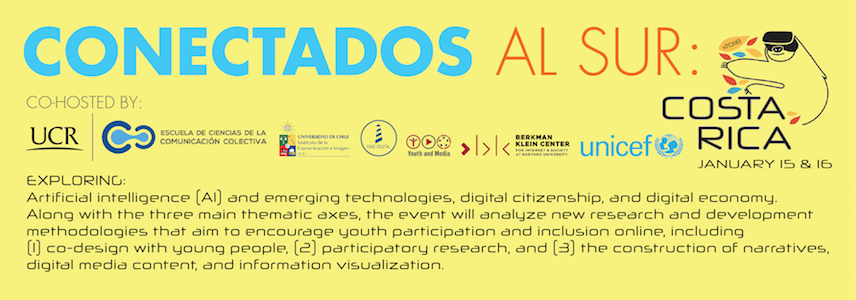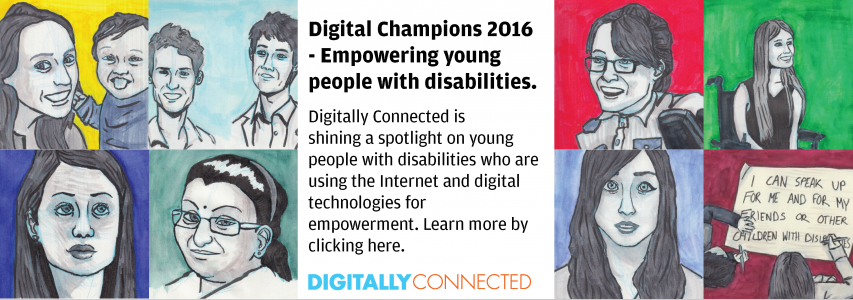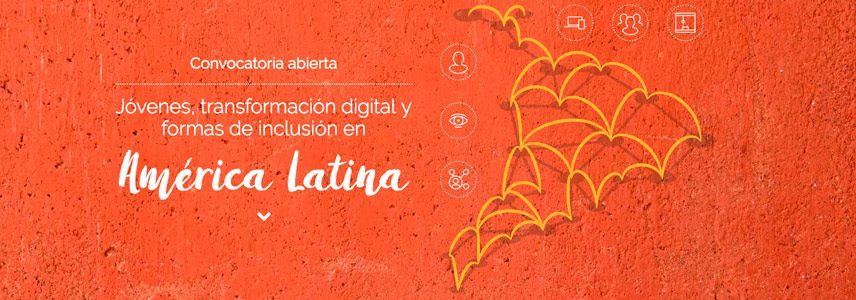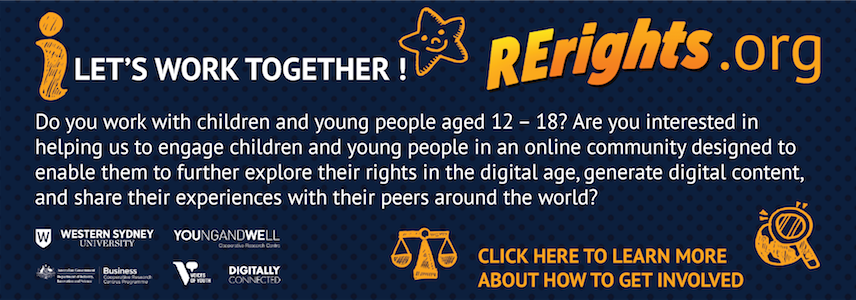MAKE: Media, Art, and Knowledge Engaged
Globally, youth aren’t only consuming media, art, and knowledge — they’re making it as well. And the more they make, the more they discover, growing engaged in their communities and the wider world. In a series of workshops held in tandem with Digitally Connected, children and youth from around the world, together with artists and researchers affiliated with Harvard and MIT and a host of global teachers, mentors, and coaches, will join together in their studios and in cyberspace to make art that addresses topics of vital interest to the symposium and to young people everywhere.
Hosted in Boston and several cities internationally (including Bogotá, Colombia; Quito, Ecuador; and Abu Dhabi, UAE), the MAKE workshops will offer opportunities for young people to engage in media-making and connected learning in partnership with their peers at mirroring sites around the globe.
Working with mentors, these young people will produce a variety of media and knowledge—including images, video, publications, and visual art—for presentation in an exhibition as well as online.The workshops will use research, making, and reflection to explore such themes as danger, copyright, and digital connectedness. Exploring the means by which youth can engage digital media in open-ended, experiential learning, participants will demonstrate some of the many ways in which technology empowers children and youth around the world.
At the symposium, an exhibition of the work will offer an expressive and provocative counterpoint to discussions fostered in panels, roundtables, and presentations. Workshop mentors and participants will offer an account of the events and present findings, suggestions, and discoveries. They will engage with colleagues to explore the ways in which such workshops could be offered as a global platform and program for young people, north and south, to bring their worlds into intersection and dialogue. To that end, the curriculum will be made available online and in print publication form, in combination with associated resources and evaluative materials, to promote further dialogue, replication, and remix of the program.
Coordinating Team:
- Matthew Battles (metaLAB);
- Dalida Maria Benfield (Berkman Klein);
- Giuliana Cucinelli (MIT);
- Tim Davies (Berkman Klein);
- Primavera de Filippi (Berkman Klein);
- Sarah Newman (metaLAB);
- Luca Simeone (metaLAB).
1) Public Domain Remix
Partnering Site: Ker Thiossane, Dakar, Senegal – http://www.ker-thiossane.org/
The Public Domain Remix is a partnership challenge run by the Open Knowledge Foundation France and Wikimedia France, aimed at encouraging people to remix public domain works in a creative way. The challenge specifically seeks to promote the use and reuse of public domain works by encouraging the shift from one medium to the other (e.g. illustrating a song, creating a sculpture out of a story, etc). For the purpose of this event, a pedagogical workshop will be run with a group of 15 kids (age 7-13), who will learn about copyright law by experimenting directly with the artistic practice (learning by doing). The goal is to explain the underlying concepts of copyright law and the public domain by showing what can or cannot be done with a work. The theme of this year workshop will be: “Tell the story of where you live”, as kids will be invited to remix public domain works in order to illustrate their own neighborhood.
2) Mapping Danger
Partnering Site: Forming Intersections & Dialogues (FIND program), NYU Abu Dhabi arts + technology program. NYUAD gathers students from around the world, who come together on the Abu Dhabi campus for their university experience. The FIND program works with incoming students in an introductory media course.
What does “danger” mean? What does it look like? How does photography inform and shape our understandings of danger—how does it help us point to it, avoid it, or learn from it? In this workshop, young people in Boston’s City Studio and students at NYU Abu Dhabi will use photography to express their own understandings of security, safety, and fear in spaces offline and on. Led by artist and Harvard metaLAB fellow Sarah Newman and metaLAB associate director Matthew Battles, in collaboration with filmmaker Mo Ogrodnik of NYUAD, young people will plunge into their respective cities to image danger as they see it, then return to the studio to share, combine, and juxtapose their imagery, developing a unique perspective on how images and cameras affect our diverse experiences of threat, fear, and uncertainty in a complex and ever-changing world.
3) Mapping Networks, Making Worlds – A Youth Driven Participatory Action Research Project
Partnering sites: Universidad Distrital San Jose de las Caldas, Bogotá, Colombia; El Churo Colectivo, Quito, Ecuador; City Studio program, School of the Museum of Fine Arts, Boston, Massachusetts
How can digital media be more useful for children and youth? To answer this question, understanding the new uses of digital media and the networks created by children and youth is crucial, along with hearing their own critical analysis and opinions. As a contribution to the conversation at the UNICEF conference at the Berkman Klein Center, Mapping Networks, Making Worlds is an experimental participatory action research project that will engage children and youth in an exercise of critically mapping their communication networks, working to understand with whom they communicate using information communication technologies, as both transmitters and receivers of information. At the heart of the project is the belief that young people are always engaged in innovative uses – as media theorist Jesús Martín-Barbero would term them, “nuevos usos” – of digital media, and that these innovations, which include techniques and world-views, should drive new visions for the policies that support their ongoing engagement of information technologies. In mapping networks, new terms for those networks, communities, and civic futures may emerge that enable all of us to better address needs and envision possibilities – making worlds.






















